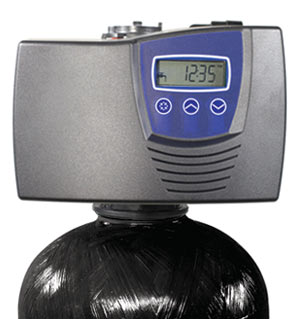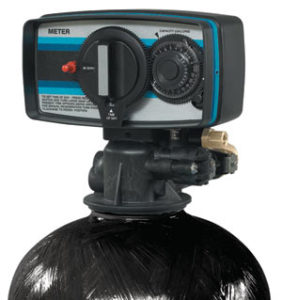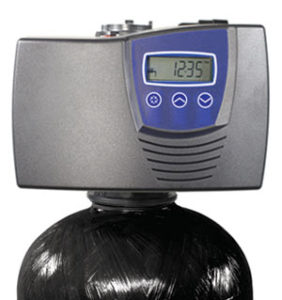
17 Sep Common Misconceptions About Water Softeners
 Water softeners are a great innovation used to help “soften” the water and improve the quality of the water in your home. Hard water on your appliances and dishes can often leave a film over time due to mineral build-up. Softening the water ensures the longevity of your appliances and the quality of the water you drink.
Water softeners are a great innovation used to help “soften” the water and improve the quality of the water in your home. Hard water on your appliances and dishes can often leave a film over time due to mineral build-up. Softening the water ensures the longevity of your appliances and the quality of the water you drink.
Safe to say water softeners are here to stay and have proven to be a commodity in all homes. There are however some common misconceptions about water softeners you may not know. We are setting the record straight about water softeners and why they’re good for your home’s water.
- Water Softeners are costly!
Like so many things in life, sometimes the initial investment will save you in the long run. The installation will cost you some upon the initial set up, but the water and electricity you will save over time will help offset that cost. Also, your water heater will help save you money over time as it won’t be as inefficient due to mineral buildup. With a water softener, it will also help keep your appliances running longer and more efficiently. With soft water, it helps reduce the amount of water used in laundry by more than 50%!
- Water softeners will purify your water
 While the water softener will reduce the hardness in your water, it won’t fully purify your water. The softener will remove all the unnecessary minerals that build up over time but won’t purify your water of all contaminants. Water softeners are excellent tools for removing all the hard water out of your water and removing the mineral buildup. Investing in a reverse osmosis system will give you a full water filtration solution for the water you and your family drink. There are other home water filtration systems to deal with other iron and sulfur issues.
While the water softener will reduce the hardness in your water, it won’t fully purify your water. The softener will remove all the unnecessary minerals that build up over time but won’t purify your water of all contaminants. Water softeners are excellent tools for removing all the hard water out of your water and removing the mineral buildup. Investing in a reverse osmosis system will give you a full water filtration solution for the water you and your family drink. There are other home water filtration systems to deal with other iron and sulfur issues.
- Water Softeners put salt in your water
When you install a water softener, it’s a common myth that you will be drinking salt water over time. What water softeners do is remove the minerals – like calcium and magnesium from your water using an ion exchange, which makes the water hard. There is a special channel that will filter the hard minerals out of your water using sodium, but not salt. It’s a common misconception, but an important one as you and your family won’t be drinking salt water.
- The sodium in your newly softened water is unhealthy for you
The amount of sodium used in your softeners will depend on the level of hardness in your home’s water. However, the most common amount of sodium is so minimal that won’t have any effect on your health for most healthy adults. Most liken the amount of sodium in the water softener to some of the additives you will add to your food typically.
With many water softeners, there are separate taps you can install on your faucet in case you don’t like the taste the water makes. One tap will be used to wash dishes, bathing and laundry while the other tap, while more filtered, will be more suitable for drinking and food preparation. We recommend installing a reverse osmosis system to get the purest form of drinking water for your home.
- Water softeners also take away health minerals
As we’ve mentioned, water softeners are primarily used to eliminate the minerals from your water and get rid of the hardness, but it will not remove all the healthy important minerals you need to sustain yourself. The mineral buildup doesn’t provide the same benefits in your drinking water as does the minerals and nutrients from other food and supplements.
Unlike the minerals and nutrients you will get from vegetables and other foods, the minerals that will build up in your water system won’t add the right minerals to your daily diet.
- Softer water will leave a film on your skin
Sometimes, on the first shower after a water softener installation, customers will say there’s a different feeling in the water. It feels somewhat slimy but rest assured, it’s not a film and it’s not hazardous. That feeling on your skin is actually a good thing. More often with hard water, your skin will be left with a soap scum after showering. The feeling you get after a soft water shower or hand rinse is actually the natural essence oils your body is supposed to feel. It should feel more smooth than have your skin left with a sticky residue.
- Water softeners will waste water and energy
While some water softeners will waste some water and salt during the process, there are high-efficiency models available to homeowners now. These energy-efficient water softeners will only use enough water and salt as is needed for the job. We highly recommend these products, as it helps the environment while helping your water supply.
With soft water, it becomes more efficient for cleaning, meaning you’ll be using a lot less water when washing your dishes or doing the laundry. This will also help the environment in that you’ll be using less detergent and chemical cleaning products. Even better, when you buy a reverse osmosis system, you can stop buying water bottles – another notch for the environment!
- You won’t need a water softener if you have city water
Of all the myths about water softeners, this is the most common one. Most homes run off of private wells running into their homes and in all cases, the water needs softening.
With city water, it’s almost rarely perfect water. All water throughout Canada has different levels of quality but the most efficient water systems will run with water softeners and a reverse osmosis system.
As with most things related to water, we are here to help with all of your water filtration and water softener needs!





No Comments